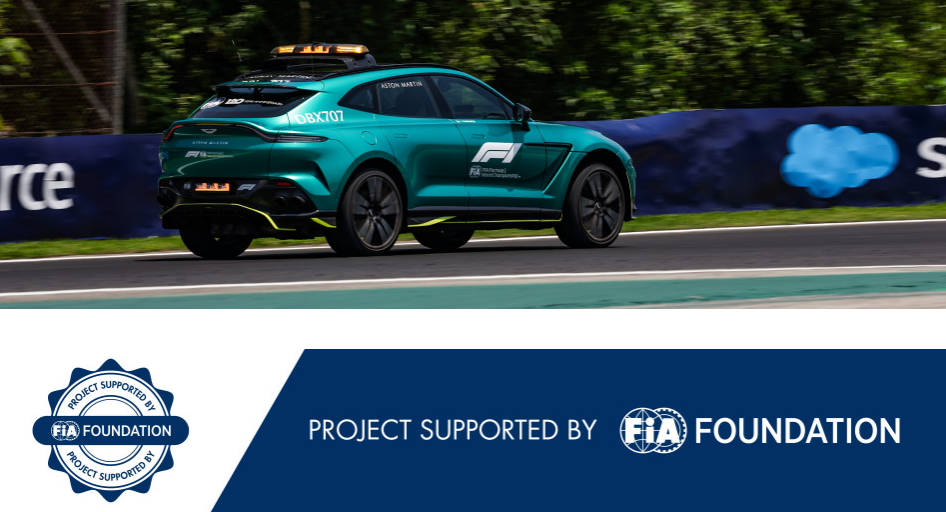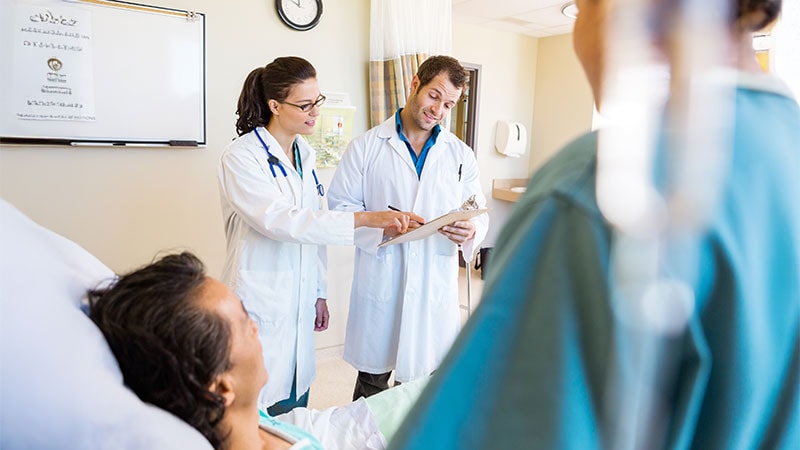Sarah O’Keeffe’s career in making medicine

With the ink still drying on her new Doctorate Degree (Ph.D) in Organic Chemistry from University College Cork, local (Glanmire) woman Sarah O’Keeffe began her professional career journey when she walked through the doors of Eli Lilly and Company as a new employee in 2007.
Now working for the company for over 17 years, having spent time in Ireland and the US, O’Keeffe has risen through the ranks globally to become Senior Vice President of Product Research and Development at Lilly Research Laboratories in Indianapolis, where she reports directly to Dan Skovronsky, Lilly’s Chief Scientific Officer and President of Lilly Research Laboratories. and from where she leads a global team, responsible for developing the next generation of medicines.
Her path to her current role may never have happened; a serendipitous encounter in Dublin Airport between her PhD supervisor, Professor Anita Maguire (UCC) and Lilly’s President of Manufacturing led to the unexpected opportunity of a postdoctoral research fellowship at Lilly’s headquarters in Indianapolis. Lilly was working to bring more “manufacturing process research and development” to Kinsale, and Professor Maguire recommended sending top PhD graduates to Indianapolis, to highlight the calibre and credibility of Irish graduates, and Ireland as a location for research and development.

Sarah was the first graduate to participate, and the programme has seen five subsequent Irish graduates participating since she completed her assignment in 2009.
Sarah describes her postdoctoral fellowship in Indianapolis as “one of the most demanding yet most rewarding periods of my career” where she designed new synthetic processes for potential new medicines in clinical development. In 2010, she returned to Ireland along with the project she was working on, to scale it for commercialisation in Kinsale.
That period of time was a tumultuous and transitional stage for the global pharmaceutical industry.
“It wasn’t the best time in the pharmaceutical sector. Pipelines were getting smaller, and there were gaps in the flow of scientific innovation from research laboratories right across the industry. Many companies, including Lilly, were sadly having to downsize.”
During this period, the Kinsale leadership team were determined to pivot towards new technology and activities to enable Lilly’s medicine pipeline. They created an environment where challenging the status quo was not just accepted — it was expected. Combining the abundance of existing scientific and engineering talent on the site, with a group of new hires fresh from assignments with development teams in the US, fostered a culture for fresh ideas and a new era for Lilly Kinsale.
As Sarah puts it: “We started thinking differently, challenging the system, and striving for better ways of doing things.”
She credits the scientific community and culture at Lilly Kinsale: “There was a formidability to the team, with a passion for the mission that allowed us to make progress in ways that were previously unimaginable. And the leadership team had our backs, encouraging us along the way particularly when we experienced failure.”
Until then, Lilly Kinsale’s primary role was the implementation and improvement of established drug substance manufacturing processes for commercial supply. Suddenly, it was at the forefront of developing entirely new manufacturing processes, and the site went from receiving processes, to co-developing them with the Product Research and Development (PRD) team in Indianapolis. The site began to get involved earlier in the drug development lifecycle, supporting clinical supply processes, and working on the design and development of processes this early was a means to strengthening the scientific capabilities at the site.
O’Keeffe likens the site’s new mission to a start-up: “There was a new focus on creating unique value through innovation. Of course, this came with a lot of uncertainty and success was not guaranteed. We were always having to quickly adapt to new situations.”
It is not a coincidence that this site is now at the forefront of pharmaceutical drug substance innovation using novel technologies and advanced digital infrastructure.
One such example was the design and build of a continuous manufacturing plant for the production of active pharmaceutical ingredients, and in 2017, Lilly Kinsale was honoured by the International Society of Pharmaceutical Engineers with its first global Facility of the Year Award for Innovation — a global recognition of the team’s unwavering commitment to innovation.
“We didn’t know at the time that these technologies would have a wider application but we’ve since used them in the manufacture across a number of therapeutic platforms including small molecules and peptides, all at the Kinsale site.”
One of the most significant lessons O’Keeffe took away from this period was the power of collaboration.
“Creativity is vital, but it’s limited if you can’t work alongside others who can challenge and improve upon your ideas,” she emphasises.
This collaborative culture, particularly between development and manufacturing teams, was key to driving meaningful innovation. The success was no accident.
“It took a lot of hard work, commitment from leadership and scientific ingenuity” O’Keeffe reflects. Looking back, O’Keeffe sees this period not just as a series of innovations but as a testament to the power of innovation itself: “Innovation is about scaling solutions to new challenges, even when those challenges haven’t yet materialised.”
Soon after those new projects were up and running in Kinsale, Sarah made the big decision to return the US, rejoining the development organisation in 2017. There she took on leadership roles of increasing responsibility within development and today she is responsible for over 1,000 scientists and engineers in the Product Research and Development (PRD) organisation across sites in USA and India.
The PRD team operates at the heart of Lilly’s research and development engine, transforming novel discovery molecules into life-changing medicines for patients.
“We create blueprints for the development of biological and synthetic medicines and patient-friendly delivery devices for all of Lilly’s medicine pipeline. We need to constantly challenge ourselves to solve the ‘unsolvable’ to deliver innovative, cost-effective and sustainable products that can be manufactured at the speed and scale patients need.”
Today, O’Keeffe continues to push the boundaries of science at Lilly, driving forward the collaborative and innovative spirit that helped define her career.
“At the heart of everything we do, it’s about speed to patient,” O’Keeffe said. “In every corner of Lilly, we’re all thinking about that — whether you’re trying to discover the next new medicine, or you are working on a potential medicine already in clinical trials — how do we get these medicines to patients who are waiting?”
O’Keeffe is excited about Lilly’s pipeline, which includes many new therapeutic platforms to address unmet medical needs in areas such as cancer and genetic medicine.
In September last year, O’Keeffe, together with Lilly Chief Executive Officer, David Ricks, announced a $4.5 billion investment to build the Lilly “Medicine Foundry” near the company headquarters in Indiana. This is a first-ever facility of its kind, with “the ability to research new ways of producing medicines while also scaling up manufacturing of medicines for clinical trials”.
The Foundry serves a dual purpose: researching new manufacturing technologies, then putting them into practice with production of drugs for clinical trials.
Alongside her colleagues, she takes her work seriously, with a deep respect for the impact it has for the millions of patients worldwide.
“It’s hard work, it’s hard science, but it’s rewarding knowing that you had a hand in designing medicine that may make it into the hands of your family or friends someday,” she said. “This is the reason we come to work every day.”
www.lilly.com/ie/careers
link






